To view this content, you must be a member of the Rose City Review Patreon
Already a qualifying Patreon member? Refresh to access this content.
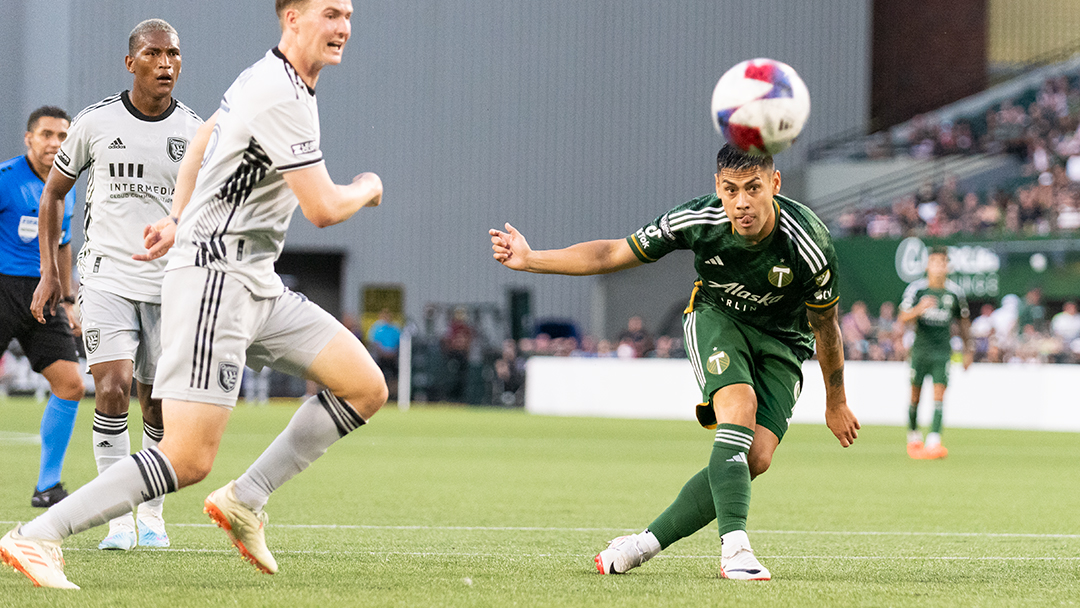
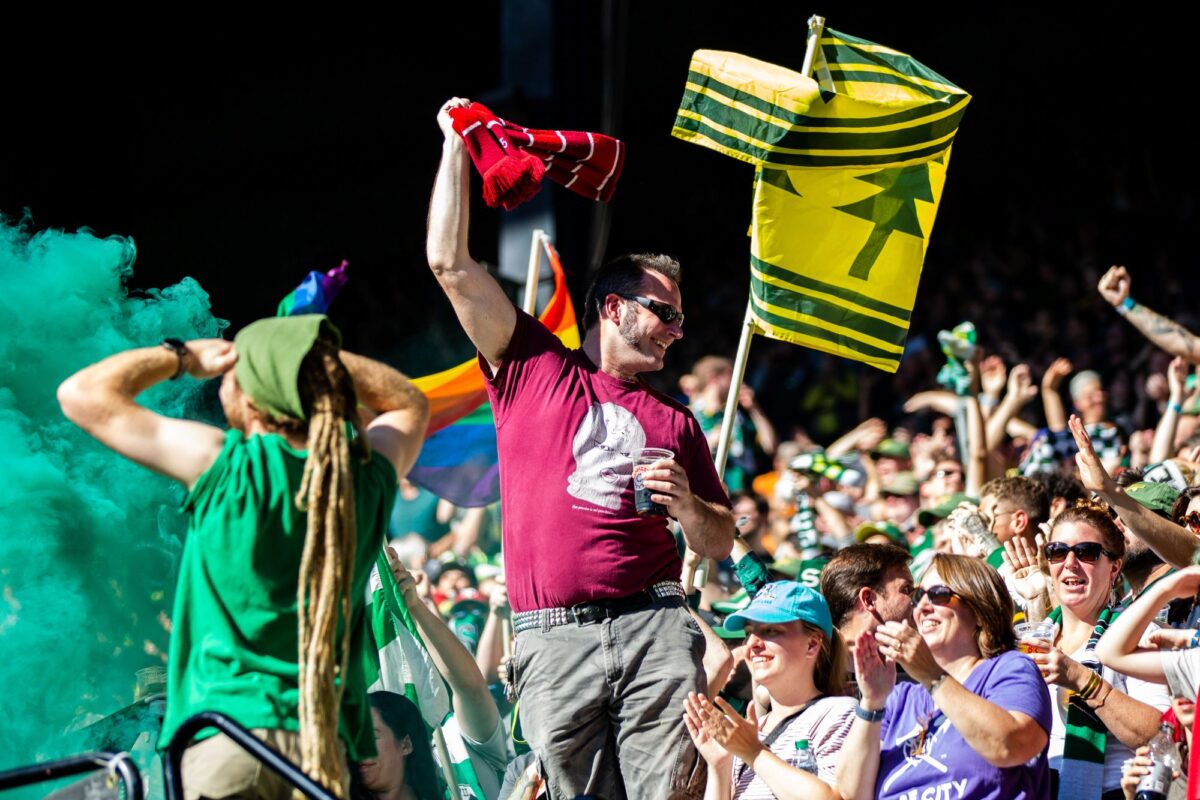
Disclosure: Jennifer Ingraham, a 107ist board member, also serves as a copy editor for Rose City Review. She was not involved in the creation of this piece in any way.
Last summer, a number of Portland soccer fans came forward about their experiences with the 107ist, the organization that coordinates both the Timbers Army and Rose City Riveters. The first was Milo Reed, a Black capo in the TA. In a Medium post, Reed wrote that the 107ist board had repeatedly ignored and spoken over him when he tried to weigh in on a discussion about a blog post some on social media were calling racist.
Following Reed’s post, two members of the 107ist talked with Rose City Review about their own experiences in the TA and RCR. We also spoke with the founders of Black Fires, a Black supporters group in Chicago. All four echoed Reed’s sentiment: self-proclaimed inclusivity and anti-racism isn’t enough if BIPOC don’t feel like their presence and voices are valued.
Fans called on the 107ist board to actively listen to and engage with fans of color, make the structure of the organization more accessible, and for board members to step down and create space for BIPOC to take their place. One person specifically said the board needed at least three BIPOC members before she believed they could move forward. Then-newly named 107ist President Gabby Rosas predicted that those resignations would take place in December 2020, in accordance with the regular 107ist election cycle.
Over the summer, the 107ist also formed a BIPOC committee to provide independent oversight of the 107ist and evaluate why fans of color had the experiences they did. However, all of the BIPOC committee members are also 107ist members—a requirement for any committee position within the organization.
“We were not going to solve the board’s diversity and race problem,” the committee said via email, “but we could, out of love for the community we were part of, help point out areas they needed to address change and to call them out when they failed to meet expectations.”
Since the BIPOC committee formed, it has held regular meetings to discuss race in the TA and the police presence in Providence Park, advocate for better representation within the 107ist board and committees, and create better pathways for the general community to get involved with the 107ist.
When election season came around, three of the current board members—including Rosas—were reelected to three-year terms.
“We’re seeing that as a big red flag,” Rosas said, “because we recognize that as an organization we need to be doing a better job of soliciting for new board members and making sure that everyone who’s interested knows enough about what it is to be on the board and what the organization needs and can feel comfortable running.”
The one new member, who is white, filled the seat of Ray Terrill, who had stepped down over the summer and asked that his position be filled by a person of color.
The 107ist also created a new election pathway that allows for members of the RCR and TA steering committee to each nominate a representative to a one-year term on the board and the BIPOC committee to select two candidates. The TA steering committee and BIPOC committee took advantage of this new pathway and appointed three representatives in total.
“We’re very focused on making sure that we’re listening first,” Rosas said. “And listening to not only our new board members, the two that were nominated by the BIPOC committee, but also that committee as a whole.”
However, Rosas said there’s a learning curve for new members, which makes it hard for new representatives to make an immediate impact. The board is looking to make that transition easier for members who are elected to one-year terms. Rosas specifically pointed to ensuring that one-year representatives have information early and said the board is making an active effort to prioritize those members’ central goals. “It’s creating a sense of urgency that I think we needed,” she said.
The board is also trying to lighten its workload by allocating tasks to its various committees—something that will allow members to spend less time on paperwork and more time on the initiatives they want to carry out—and expanding overall committee membership. Rosas said she hopes this will make board positions more accessible to prospective members, since up to 12 hours of work per week is a lot to ask of a volunteer position.
Rosas said breaking down those barriers and building out all the 107ist committees to encompass a wider range of ages, backgrounds, religions, and cultures can also help inform 107ist practices. “As we diversify all of our committees, we’re able to better understand who we’re representing,” she said.
The BIPOC committee also pointed to the time commitment as a barrier to soliciting engagement. “BIPOC are already carrying the burden of this in our daily personal lives,” it said, in the form of explaining racial bias or navigating systemic racism within work, school, or community spaces.
“We are volunteering our time and knowledge to ensure the 107ist is a more inclusive organization where all members’ voices are heard and respected,” the committee said.
The BIPOC committee said COVID-19 also presents a barrier to outreach; the 107ist, TA, and RCR are primarily united by a love for Portland professional soccer, which makes engagement more difficult when everything is virtual. On top of that, many members generally have less free time, as they’re prioritizing safety and job security during the pandemic.
Still, the committee has created a pathway to anonymously present member grievances to the board by acting as a mediating body. Rosas said the 107ist is getting different feedback now that the BIPOC committee exists, although neither she nor the committee wanted to expand on the specifics of these complaints due to privacy concerns.
The BIPOC committee is also working to create a more formalized grievance process and engage with members. Due to the volunteer nature of 107ist positions, the committee said everything moves a little slower than a regular, paid workplace, but it expects to have more updates later in the year.
When asked about how it is dividing its focus between individual grievances, structural issues, and fostering pathways for representation within the 107ist, the BIPOC committee said it was “an ongoing discussion” and that more information would be available at a later date.
Rosas said trying to enact change while the BIPOC committee is still working to establish itself has added another layer of difficulty to enacting change within the 107ist. “I think what some people were expecting—and some people on the board were expecting—was that the BIPOC committee would just tell us what to do,” she said.
To Rosas, it’s been a balance of ensuring the 107ist is soliciting feedback from those outside the board, including other organizations, and taking responsibility to act on its own. The board recognizes that the autonomy of its position comes with responsibility. “We can’t wait for the BIPOC community, we can’t wait for any underrepresented community to come up with the words to tell us, ‘We’re not represented’,” she said. “We as a board, we as a leadership group have to figure out how we can represent our members without them telling us.”
Currently, the board is focusing on its annual general meeting for members—to be held at the end of February or early March. Rosas said that’s when the 107ist will share more detailed plans for its 2021 initiatives.
“We are not dropping any of our focus from last year,” she said, “but increasing the ways we want to make meaningful impact with our members and in our communities.”
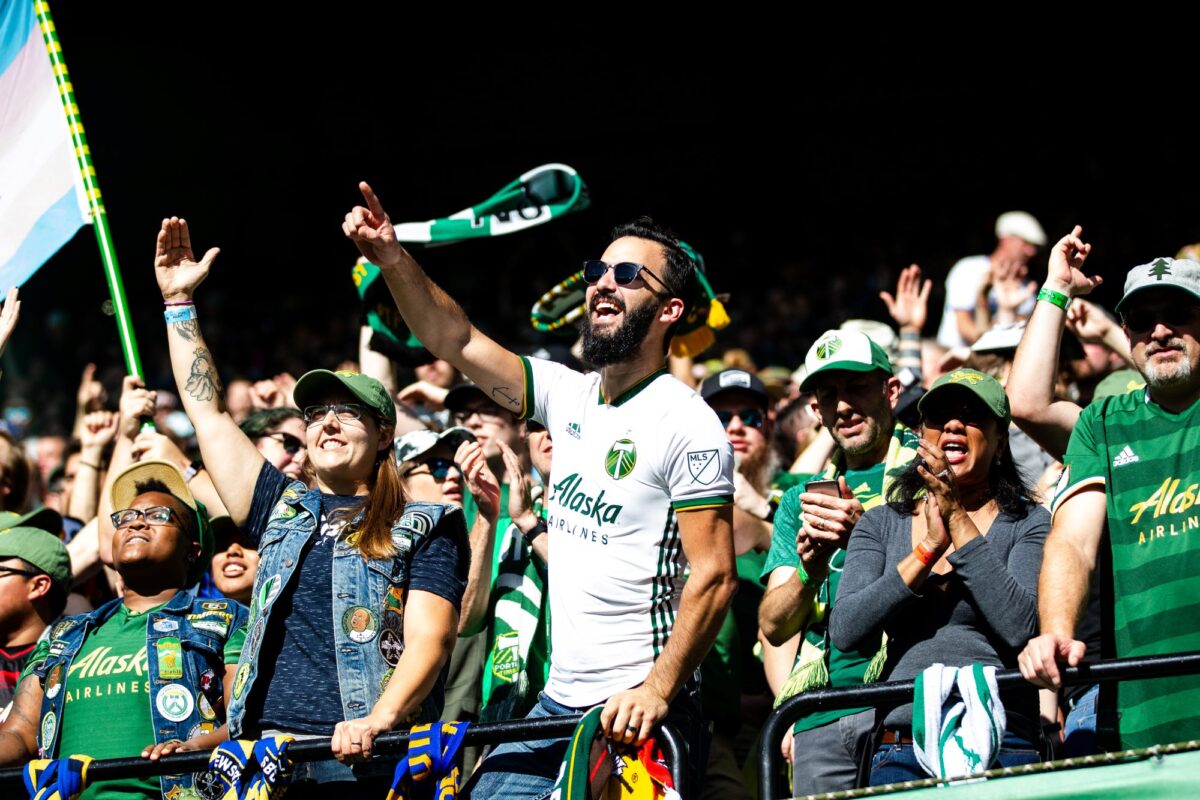
Disclosure: Jennifer Ingraham, a 107ist board member, also serves as a copy editor for Rose City Review. She was not involved in the creation of this piece in any way.
On June 1, Milo Reed published a post on Medium, detailing his experiences as a Black capo in the Timbers Army and member of the 107 Independent Supporters Trust—the nonprofit organization that coordinates both the TA and the Rose City Riveters.
Reed describes an instance from 2018, in which the 107IST Board of Directors deleted a blog post that they, a group of non-Black people, deemed to be offensive to the Black community. However, Reed, “felt that the post was not problematic & urged the 107ist board to consult communities of color before speaking for them.” He also requested the Board share a copy of his email; Reed points out that, a couple of months later, a white capo was allowed to share their own thoughts about race “on the same website [Reed] was denied access to.”
According to Reed’s post, the Board asked him to explain his requests to them at their next meeting, less than 48 hours in advance. Based on the context of the invitation, Reed believed it to be “disingenuous” and “like [the meeting] was going to be an interrogation as opposed to a conversation.”
“I can’t count the number of times I have brought a plan, concern, or proposal to a 107ist board member only to be given a metaphorical pat on the head, a terse rejection or worst of all ignored,” writes Reed. “This has only intensified in the last couple of months. I have told several people they have behaved in ways that were disrespectful & patronizing since March, only to be told ‘I’m sorry you feel that way.'”
Three days after Reed published his story, the 107IST Board shared a response, acknowledging their failure to listen to BIPOC voices in the TA and RCR—although doing so without explicitly mentioning Reed or his own blog—and declaring a commitment to publicize a detailed anti-racism plan within the next 30 days.
Reed’s post came in the wake of the murder of George Floyd, in the midst of global protests against police brutality and systemic racism and calls that Black lives matter. (“If Black Lives Matter what about Black voices?” Reed asks.)
The outcry—and wave of public statements from their Black members—has pressured many organizations to examine the role of race within the spaces they inhabit.
When examining the role of racism within these spaces, it’s important to first acknowledge that we live in a society that’s systems of power and organization were created by white people who often strove to exclude people of color. Whether through the institution of slavery, segregationist policy, or simply hostile attitudes that targeted BIPOC, they conveyed that people of color were not welcome.
Although many of these laws have been repealed, these spaces cannot be separated from their racist origins. When those in charge do not attempt to reconcile with and actively combat this racist past, those same systems of inequity remain unchecked. We see them perpetuated in the racial wage gap, in the small number of people of color—especially Black and Indigenous people, especially Black and Indigenous women—that hold leadership positions in companies, in the over-policing and mass incarceration of BIPOC, and in countless other areas of everyday life. As Simone Charley points out, these “power structures [are] so ingrained in society that to question them is to question yourself.”
Like many organizations across the United States, the TA and the 107IST are a product of the society that they belong to. Regardless of self-proclaimed anti-racism and anti-fascism, members not immune to intrinsic bias; Reed’s story shows as much. And, as tends to be the case with systemic racism, his experience is not an isolated occurrence.
“When I first moved to Portland in 2016, I didn’t know a single person there,” says Chelsea Waddell, a member of the 107IST, “definitely not anyone in the soccer community.” She recalls going to the 107IST website and reading about the group. Something stuck out to her on the 107IST’s “About Us” page: “We have always said that if you want to be Timbers Army then you already are […] Since 2013, the same has been true for the Rose City Riveters.”
“I was like, wow, what a cool sentiment,” Waddell says. “You don’t have to be anyone special or do anything to be part of this organization.
“I think you’re immediately accepted when you walk into that group,” she continues. “There’s no prior judgment of who you are because of who you are. If you’re a member of the LGBTQ+ community, which I am, and a person of color and a woman—I’m really hitting the triple threat there—you can walk in and really be embraced, but I feel like only if you agree with everybody else all the way through.”
Anabel Ramirez, who was a regular presence in the North End for roughly ten years, feels similarly about her experience in the TA. “I got hooked into it,” she says. “It felt like a cult fervor when you first join in, and you want everything: you want all the scarves, you want all the patches, you know all the chants. You get really clicked into this idea that it is a collective, and then it doesn’t feel so collective in certain aspects.”
Both Ramirez and Waddell believe that this sense of collectiveness is enforced by the unspoken expectations in the TA, and, to a lesser extent, the Riveters: standing and chanting together, cheering on the team, and staying off your phone. For those involved outside of games, it’s volunteering your time and money, helping in the creation of tifos, and contributing to 107IST fundraisers for other nonprofits around Portland.
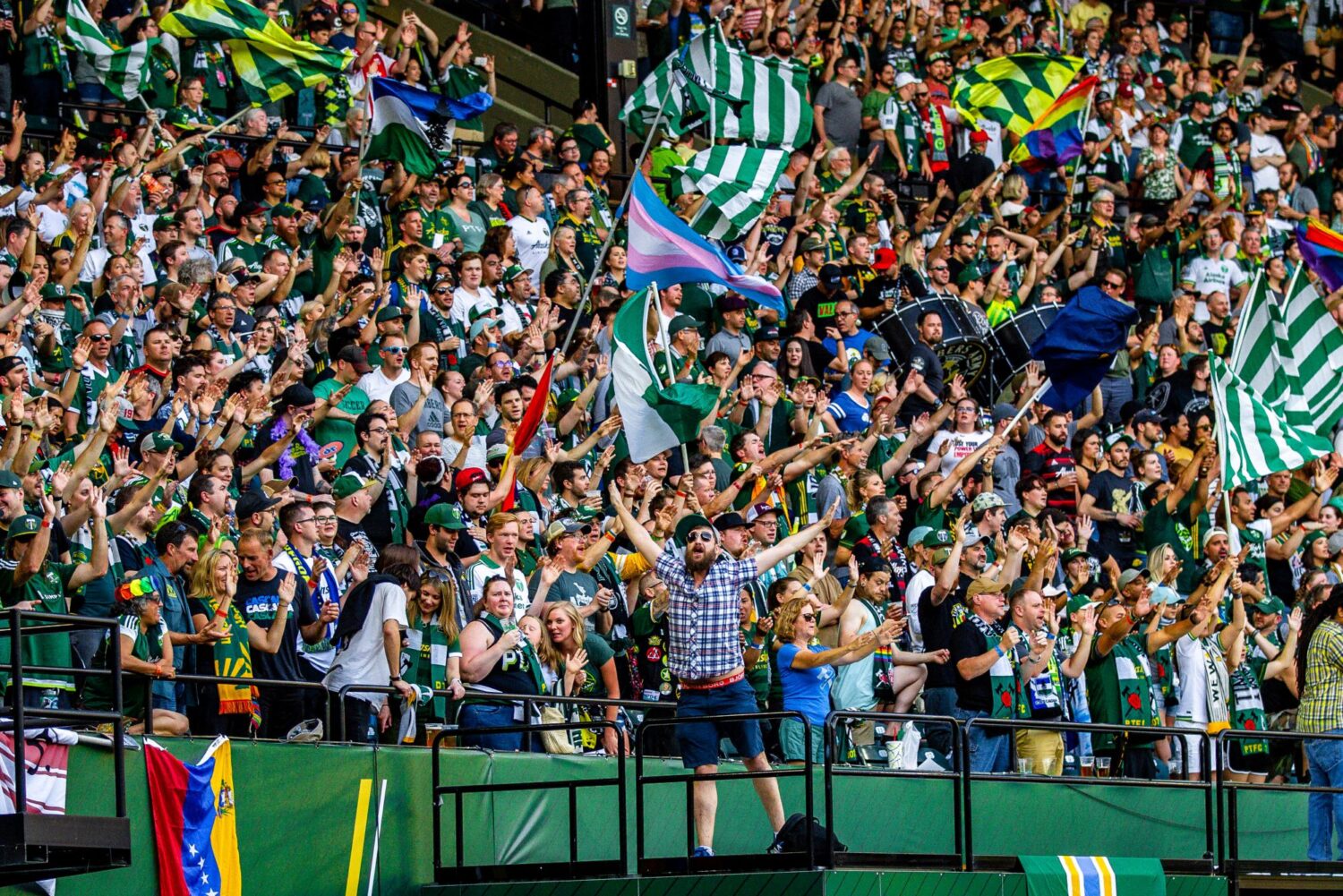
However, unspoken rules can lead those who are unaware of them, or simply wish to express their support in a different way, to feel as if they don’t belong. This is only accentuated for BIPOC fans who are already navigating a very white space.
“In trying to be this cohesive North End voice, they stamp out a lot of other voices,” Ramirez observes. “I don’t think a lot of them see themselves as stamping out specifically Black and Brown and Asian voices, but it happens.”
Ramirez points to the fact that many of her BIPOC friends don’t feel welcome in the TA—from those who simply don’t want to acknowledge the group after they displayed the Sunshine Flag, to the large numbers of Latinx families who show up at Timbers 2 matches, but not Timbers games. She, herself, felt uncomfortable in the TA unless she was with a certain group of friends.
As a Black woman, Waddell perceives the racial diversity of the TA and RCR to be similar to that of Portland, a city that is known for being very white.
To Jake Payne and Phil Bridges, this problem isn’t exclusive to Portland. The two are co-founders of Black Fires, a Black supporters group for both the Chicago Fire and the Chicago Red Stars. “You see this with a lot of supporters groups around the league,” Payne points out, “of saying that you’re inclusive and diverse, but your stands don’t really reflect that. I think that’s something that more than Section 8 or Timbers Army or anyone need to look at […] like, okay, if we’re that inclusive, why don’t our stands reflect what our values are?”
Bridges points to the fact that, in Chicago, it took over 20 years for a real push to make the stands more diverse—both in terms of LGBT and BIPOC fans—to actually happen. “You have just a lot of people who love the idea of saying that they’re diverse,” he says. “They love the idea of that, they seem open, they love talking about it, they love feeling that way, but when it comes to actually putting in the work to make sure that happens, it’s totally different.”
One of the factors is how a club markets itself. “There is the reality of soccer’s not as big as it should be in the Black community in the United States,” Payne acknowledges. On the other hand, he notes that Chicago’s clubs weren’t actively trying to engage with the Black community until Black Fires called on them to do so.
“It’s really liberating to be able to make the experience what you’ve always wanted it to be,” says Payne, “but it’s also very frustrating, because you have to constantly almost drag people to care about this in a genuine way.”
Before the COVID-19 pandemic, one of the ways Black Fires was working to reach prospective fans was through watching games with them. Payne explains that the majority of the bars that Fire supporters frequent are in the north side of the city, which is more white. “What’s a bar [where] we can watch in the south side?” he asks. “What’s a bar where we can watch that’s Black-owned or in a Black neighborhood, so that we can be more present?”
Payne thinks this engagement is an important step beyond a trap that many fall into—fans or otherwise. Too often, he points out, “donating takes the place of actually reaching out to communities that need it and making a connection.”
Both Ramirez and Waddell notice this within the TA and RCR. “I don’t feel like they are actively fighting for people of color,” Waddell says. “I think they are passively allowing them to be a part of it, and openly embracing different people, but never going any deeper than that.”
As an example, she and Ramirez point to the 107IST’s donation drives for other nonprofits in Portland.
“I do think that the organization can be a little bit show-y, white savior-y, performative,” acknowledges Waddell. “In football culture, being antifascist and fighting for marginalized people is really, really cool, but I feel like we do it just because it’s cool […] There’s just not a lot of substance there.
“It doesn’t really matter if you can fly a certain flag or wear or display a certain symbol if you’re not doing other things to support that fight. It’s just a symbol.”
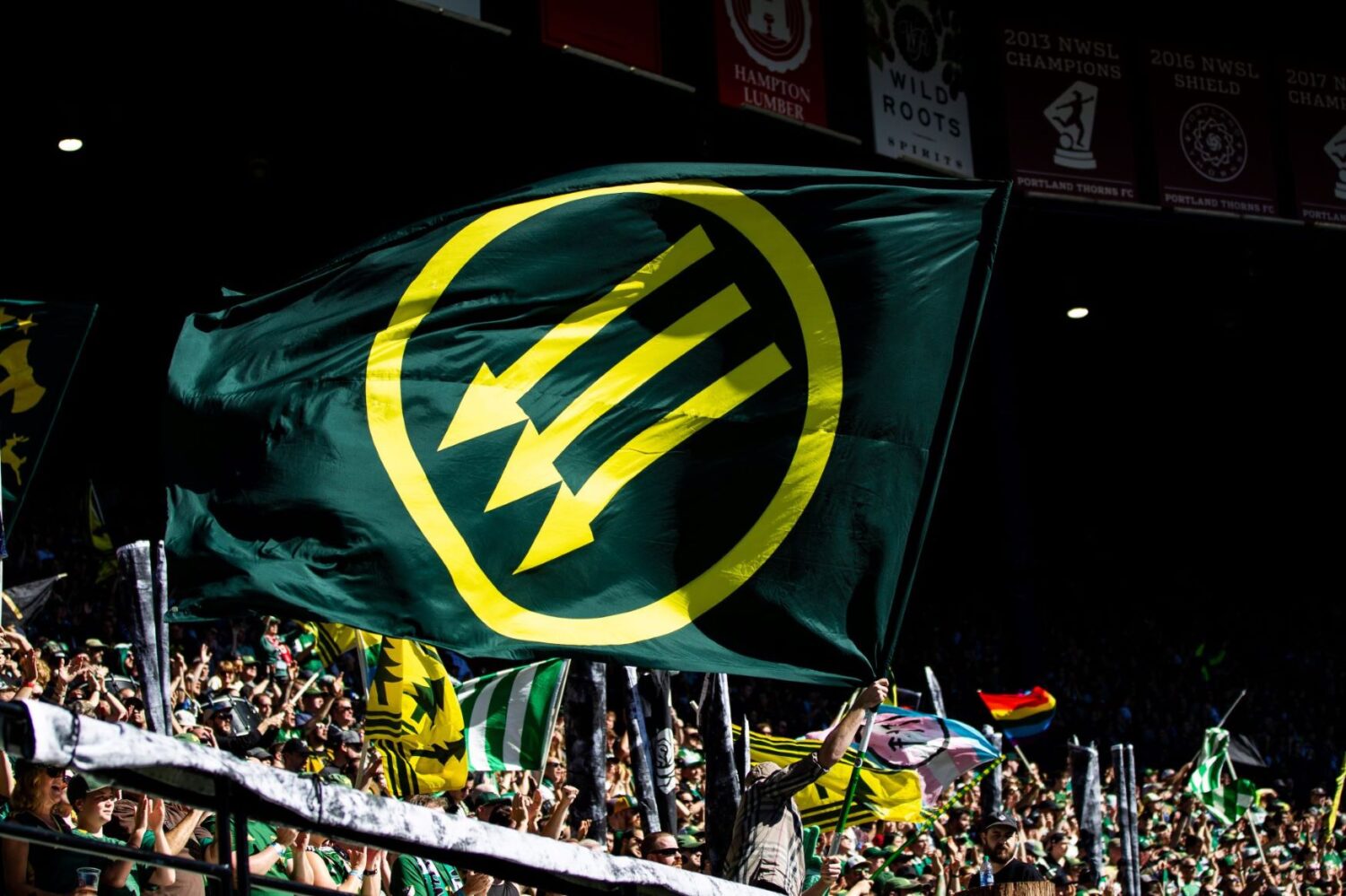
In her time with the 107IST Outreach Committee, Ramirez notes that the group would donate to organizations without making any effort to engage with the communities that those organizations represented. She explains that this was one of the main reasons she ended up leaving the committee. At the time, Ramirez said as much to the 107IST, but didn’t feel like anyone was paying attention.
“I feel like every time I would go and try to make a suggestion of some sort—it was either because I was female or because I was Latina or probably the combo—that I wasn’t getting listened to,” she says.
For Waddell, this failure to listen to BIPOC voices became evident during the discourse around the Iron Front last summer. “Obviously, this was a really passion-driven discussion, but from where I sit, part of that fight was to ‘protect’ me,” she says. “I feel like there was no space given to the people that people were fighting for.
“I just, as a person of color, didn’t see how displaying a symbol would change anything for me,” Waddell explains. “I think that’s kind of the discussion we’re at this summer, on a bigger scale, is that it’s not displaying a symbol that makes people feel safer; it’s action and words and listening to them.” While she wanted to express this at the time, she was afraid of the backlash she would face for presenting an opinion that differed from the group’s.
That fear of retaliation was validated by Reed’s post, by his stories of trying to speak up and the resistance he faced. “It was brave of him to even try,” Waddell says, “and still no one listened.”
When Reed was offered an opportunity to communicate with the 107IST Board, it was on short notice and in a space of the Board’s own creation. “[It’s] like, ‘yeah, we will listen to you,'” describes Payne, “‘but only in these predefined structures that we feel work, this is how we’ll listen to you.'”
Payne acknowledges that a refusal to listen to BIPOC voices unless they’re speaking in white-created spaces is a systemic issue: “I think that’s how a lot of places operate, not just in soccer, and it’s just not right.”
To Payne, now is a perfect time to examine the ways in which any organization perpetuates systemic racial inequity—intentionally or not. “[The] Timbers Army is just in the spotlight because they had the most public thing about it,” he says. “Plenty of other groups operate like this right now, and I think this is a good time—with it being a ‘break in society,’ with not many supporter initiatives happening—for any group, NWSL, MLS, USL, to really be thinking about, ‘okay, how are we operating?’ Especially the older groups, like Timbers Army or like Section 8: ‘this is how we’ve been operating, but is it the right way to operate?’ I think that really needs to be a big question going forward.”
“We are […] evaluating the different committees within the organization, looking to create more transparency and points of entry,” says Gabby Rosas, the newly-appointed president of the 107IST Board.
In the follow-up report from the 107IST, she shared the Board’s plan to reevaluate different areas of their operations. These include a BIPOC committee, a list of the specific places the Board is hoping to address, a summary of the outside groups the Board has formed partnerships with, and a handful of suggested books, podcasts, and movies.
“Personally, I have been reflecting on my own pathways into the organization, my own decision to run for the board, and advantages I’ve had as a white-passing person in Portland,” says Rosas, when asked about the work she’s done to examine the role of whiteness in the 107IST. “This is a large organization with many people who care passionately about the Timbers, the Thorns, supporter culture, and the community. It can be very intimidating, and I have not done a good job of recruiting and sustaining their participation, I should have been more extroverted when it comes to getting others involved in all aspects of what this organization does.”
She points to the barriers of entry that exist within the organization focusing on the time commitment asked of those involved. “There are many barriers to entry and advancement, from the supporter group involvement to the board election,” she explains. “I have been and will continue to identify barriers and address them.”
For Waddell, the hours asked of the BIPOC team was a major reason she didn’t join when invited. “I don’t really have time to volunteer to teach this Board how to just listen to people of color,” she says. “And I think there’s a lot more going on within the organization that they need to do to support people of color, but […] there’s no class you need to take or book you need to read or podcast you need to listen to to understand how to just listen to someone when they speak.”
The other factor was money. The BIPOC committee, like other 107IST committees and Board positions, is run by volunteer work. However, Waddell currently does diversity, equity, and inclusion work for her job, and felt it wasn’t worth taking on additional emotional labor—especially, for free.
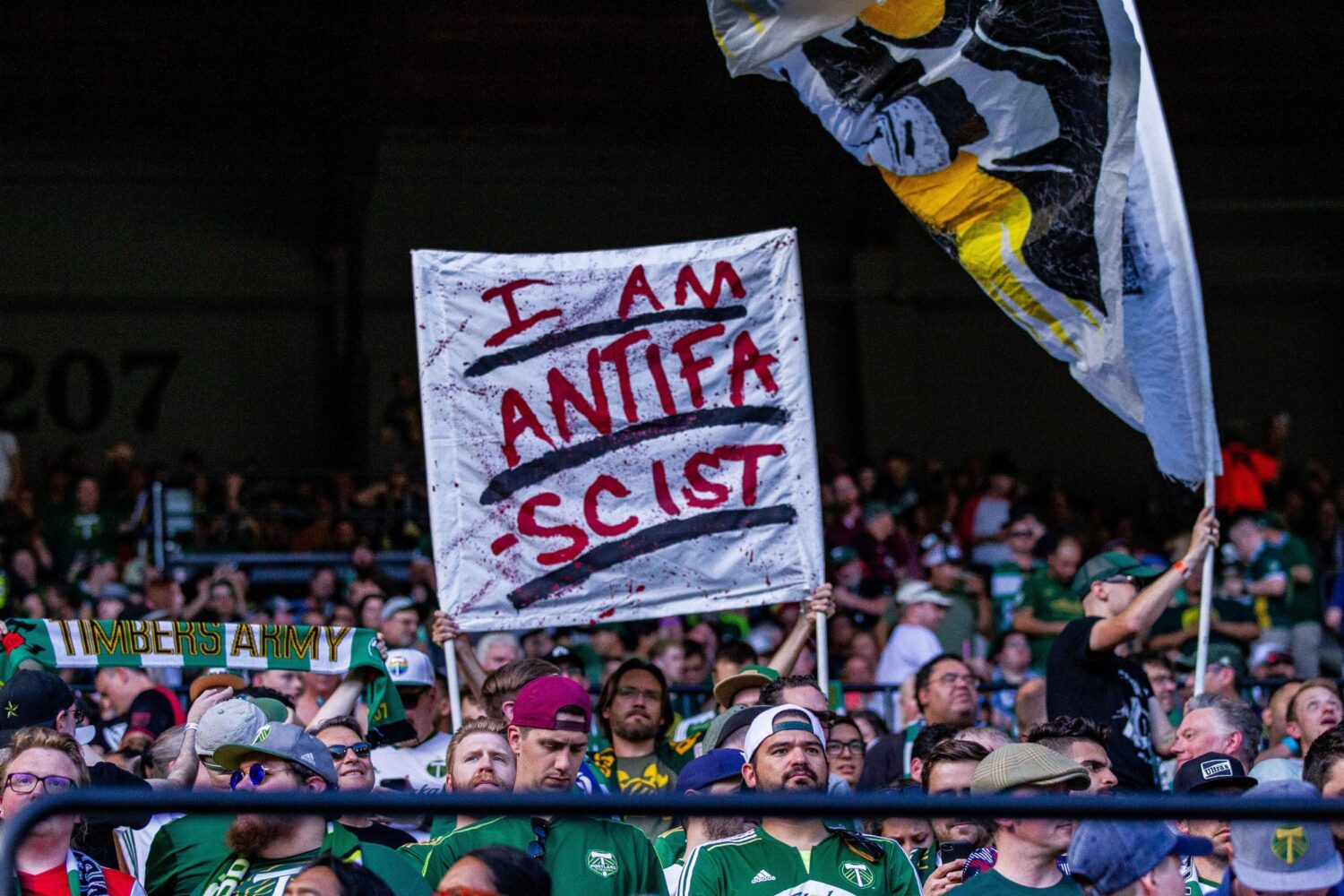
The BIPOC team shares that they now have 20 members on board, 10 of whom are currently actively involved. According to the 107IST update post, the committee has met twice so far. They “plan on meeting again soon while we work on our mission statement and other tasks that include the board.”
When asked about how the member-led BIPOC committee will remain impartial in their evaluation of the 107IST, Rosas says: “Everyone’s experience with this organization is valuable, be it positive or negative, or if they are a member or non-member. We are also not opposed to working with other local groups for guidance and insight as this committee is formed.”
The committee is not following a specified timeline, but Rosas explains that the Board isn’t planning to sit around and wait. “The hope is that as we work to remove barriers for entry and highlight different pathways in our organization, we can do so in such a way that will address the needs of marginalized groups,” she says. “As we work on change, we will be doing so at a pace where we can check in with our community, including the BIPOC team, and local organizations that have offered their support. Our goal is to be able to incorporate the feedback and tasks from the BIPOC team as they want to provide it.”
One of the ways Rosas hopes to do this is by increasing the accessibility of Board meetings. “We have never had the attendance at another board meeting like we did the June meeting,” she shares, a meeting that happened virtually to accommodate for the COVID-19 pandemic. In response, the 107IST is moving their monthly meetings to online, accessible spaces. Rosas points specifically to Google Meet, which offers closed-captioning.
As another area of focus, she hopes to more actively work with local organizations that serve BIPOC communities and other marginalized groups. “If we can increase our engagement, both through volunteering and by inviting them to 107ist events, we will hopefully be able to improve the accessibility to joining the Rose City Riveters, Timbers Army, and 107ist,” she says.
To open up space for BIPOC voices, former 107IST Board member Ray Terrill stepped down from his position and asked that his spot to be filled by a person of color. Sherrilynn “Sheba” Rawson also resigned her presidency to Rosas, although Rawson remains on the Board.
For Ramirez, those changes aren’t good enough. “Until there are at least three seats on the board filled by BIPOC, I don’t think they can move forward on this,” she says.
Rosas believes that we’ll see that shift later in the year. She explains that, as advised by Western States Center’s Eric Ward, many members have chosen “to not resign but to work on the changes until BIPOC appointments can be made or elected.”
Come Board elections in November and December, Rosas thinks the leadership changes will materialize. “I imagine that a number of board members will either choose to not re-run or step down at that time,” she says. “We will actively work with the BIPOC team should individuals want to join the board. We not only want BIPOC members on the board but also on all of the committees throughout the organization.”
Key to this will be accountability; the 107IST will have to prove that they’re seeking out and paying attention to BIPOC voices going forward. “I think a major way to prove the 107ist board is actually listening is to make changes based on what is heard and then to keep checking in to see if the changes have had an impact,” says Rosas. “I expect that many aspects of the change that is needed will not be one and done.”
Whether or not those changes play out in meaningful ways remains to be seen. However, BIPOC fans speaking up now hope that, this time, listening to their stories is a first step.
“I really love this organization,” says Waddell. “I love the team, every single player, everybody who’s at the games, everybody who’s watching from home. It means a lot to me, and that’s why I do want to speak about it. It’s not out of hate, it’s out of we can do better, and we need to do better, and we have the passion to be better […] I really do love this organization and these groups, and everything I’m saying is out of the understanding that we can be better. We have to.”